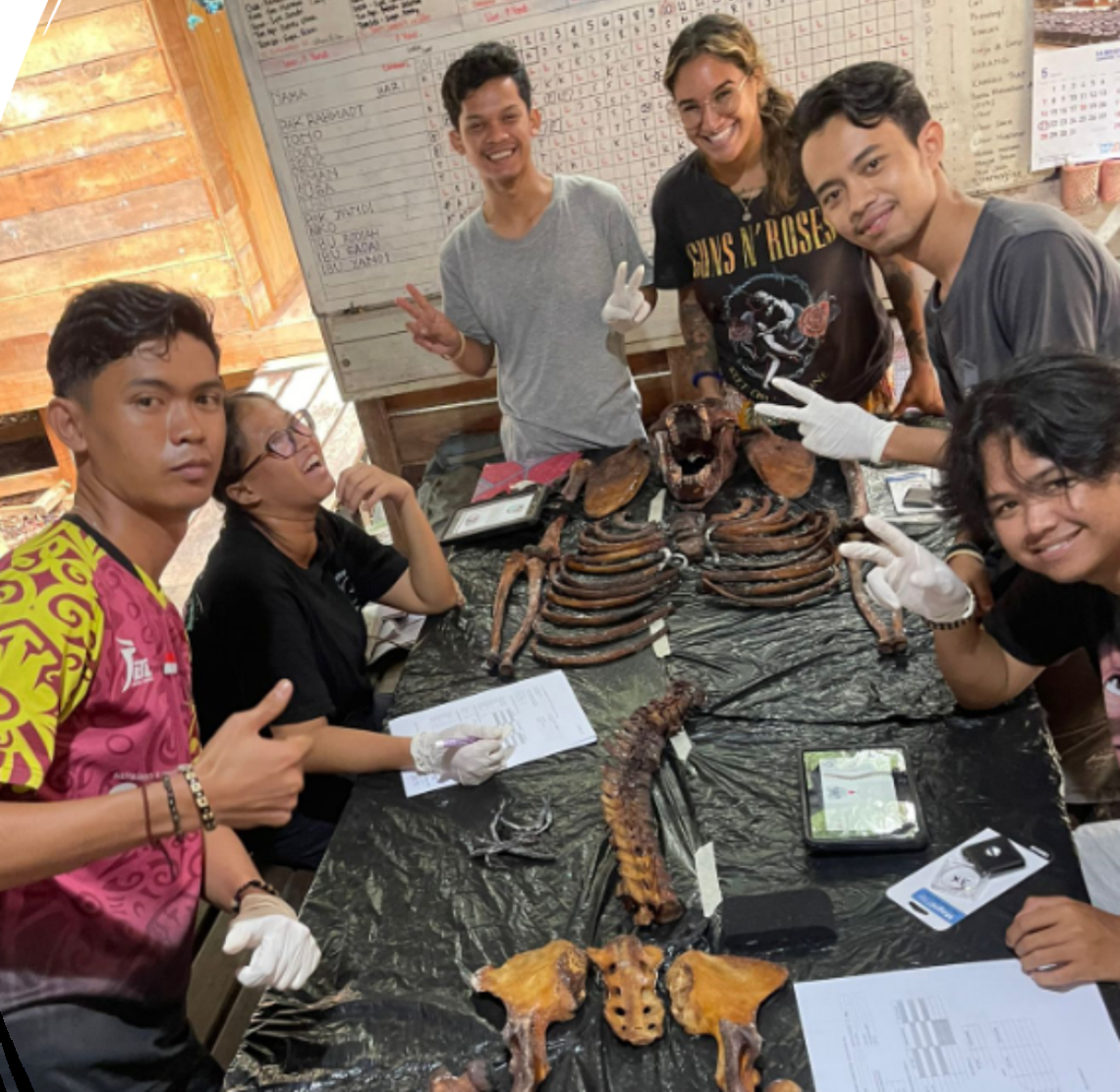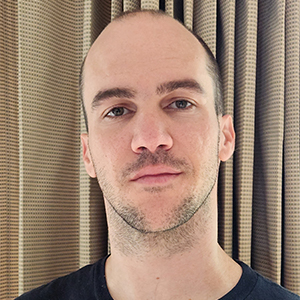Indonesia
13 Open Study/Research Award
Accepted Degree Levels
|
Grant PeriodFlexible StartGrant Length10 Months |
Award Type
Award Profile
Indonesia, the largest country in Southeast Asia, is a country blessed with multiculturalism and biodiversity. The archipelago country is the home for more than 300 ethnic groups, speaking more than 700 languages. Indonesia is also included in the top 10 of 17 mega-diverse countries in the world. The country, currently the second largest Muslim populated nation, is also the third largest democracy with an increasing economic power, proven by its G20 membership. All of these bring about many challenges, making Indonesia a hotbed for research for various fields of study.
Fulbright Indonesia (AMINEF), as the binational Fulbright commission, provides grants for a 10-month individual research project, carried out as part of a doctoral or master’s degree program, or for a non-degree research project. Grantees have conducted research in various topics ranging from orangutan, rainforest, Indonesian pop music, economics, politics, history, cultural anthropology, linguistics, etc.
Conducting research in Indonesia has been proven a rewarding experience for many Fulbrighters. Besides working on their projects, Fulbright Student Researchers will also meet, live with, and learn from Indonesians, sharing daily experiences. At the end of their grant, Grantees not only will learn more about this fascinating country but also build meaningful connections with Indonesians.

Fulbright Student Researcher Eva Mann trained students from her host university, Universitas Nasional, in an AMINEF-funded workshop
Grant Length
Grant Period
The grant is for 10 months, with the earliest start on September 1, 2026 and the latest on May 31, 2027. Grantees are expected to honor the full nature of the research period.
Orientation
Selected candidates will join a virtual Pre-Departure Orientation in Summer 2026. They will also join in-country arrival orientation in Jakarta at the start of their grant.
Candidate Profile
Candidates must be independent, mature, articulate, resourceful, flexible, and have a feasible research proposal. Candidates with only a bachelor's degree must be sure to submit well-thought-out and methodologically rigorous proposals and present a strong plan for using the future research results.
Following Indonesian Government regulation, candidates must have Indonesian collaborators and plan to jointly publish the research result at accredited journal publications.
What is life like for Fulbrighters in the host country?
Applicants are expected to research their host country. Application materials should indicate a clear commitment to the host country community and a description of how you will engage with it.
As Fulbright Student Researchers, they embark on independent projects that take them on unique journeys. Their daily lives are shaped by their fields of study, leading to fascinating experiences.
Environment researchers, for instance, spend months immersed in the heart of Indonesia's rainforests, tracking the animals they're studying. Historians delve into the nation's archives, uncovering hidden stories every day. Meanwhile, arts and music researchers learn from renowned Indonesian artists, gaining valuable insights.
Beyond their research, Fulbrighters also have the opportunity to soak up Indonesia's breathtaking beauty. Despite their diverse backgrounds and projects, they all share a common thread: their Fulbright experience profoundly contributes to their personal and professional growth.

"My Fulbright grant in Indonesia, simply put, made me grow exponentially as a researcher, student, young scholar, and, overall, as a person. It instilled in me a new dimension and level of patience, friendliness, collaboration, cooperation, and humility." Daniel McCoy, Fulbright Student Researcher, 2022
Eligibility
12 Months
Degree Level of Applicant
- Bachelor's
- Master's
- Doctoral
Special Application Instructions
Semi-Finalist candidates who are recommended for final review by the Fulbright Commission in Indonesia (AMINEF) may be contacted for online interviews.
Foreign Language Evaluation (FLE) Form
If required, submission of the Foreign Language Evaluation (FLE) form is mandatory, even if you have advanced skills or are a native speaker of the language. Failure to submit the required FLE form may impact your eligibility.
While fluency in Indonesian is not mandatory, candidates are expected to demonstrate a willingness to learn the language. Those without language proficiency must outline their plans for studying Indonesian in their application.
Importance of Language Proficiency
Please note that English is not widely spoken in Indonesia. Consequently, relying solely on English may not be feasible for certain research activities such as ethnography or leading local research teams in remote areas. In these cases, a strong level of Indonesian proficiency is essential for effective communication and successful research.
Foreign Language Proficiency Level by Grant Start
Fulbright Proposal Types
Yes
No
Affiliation
As per Indonesian Government regulations, all foreign researchers must have local collaborators or affiliations. While a letter of affiliation is not required at the application stage, Fulbright Indonesia encourages candidates to seek potential affiliations.
Potential Affiliation Options
Candidates can approach the following institutions to explore affiliation opportunities:
- State or private universities
- State or private research centres
- Think tanks
- Museums
- Local foundations or local NGOs
- Arts institutions
Seeking Advice and Support
Candidates can contact Fulbright Indonesia for guidance on potential affiliations. However, candidates must initiate the contact on their own. Once selected, Fulbright Indonesia reserves the right to change a candidate's affiliation if deemed inappropriate for their project.
Memorandum of Agreement/Understanding (MoA/U)
Selected candidates will be required to arrange an MoA/U between their home institutions and Indonesian host institutions. AMINEF will provide general advice on this document.
Affiliation Fees/Tuition
Candidates should discuss in advance with their potential host institutions about possible fees during their grant. For example, if candidates plan to use the host's laboratory, they should discuss how much they should pay. They are also encouraged to seek additional funding to cover expenses not covered by their Fulbright research grant.
Award Benefits
- A stipend broadly based on the cost of living in the host country. These funds may be used by the grantee to support housing, meals, and incidental costs during the grant period.
- International travel benefits
- Accident & sickness health benefits
- 24/7 mental health support line for urgent and non-urgent situations
- 12 months of non-competitive eligibility (NCE) hiring status within the federal government
Stipend Amount
This is an estimated amount and is subject to change. The financial terms of the grant will be confirmed in the grant document issued after selection.
Payment are transferred directly to grantee's US or Indonesian bank account. Stipend will be disbursed four times throughout the grant.
One-Time Allowances
This is an estimated amount and is subject to change. The financial terms of the grant will be confirmed in the grant document issued after selection.
- Excess baggage fees
- Language training allowance
- Registration/Permitting fees
- Research/Materials allowance
- Settling in allowance
Grantees will receive excess baggage allowance, visa and permit allowance, research allowance, and relocation allowance in the first grant disbursement. Depending on the budget, grantees may receive an allowance to take two weeks of intensive language training.
Additional Grant Benefits
- Mid-year seminar
Fulbright Indonesia offers various enrichment programs to support grantees' research and cultural exchange experiences. These programs are allocated on a first-come, first-served basis, subject to budget availability.
1. Domestic Travel Program
Funding is provided for researchers to present their Fulbright projects or share their expertise with other academic institutions across Indonesia.
2. Host Engagement Project
Funding supports collaborative and educative side projects between researchers and their host institutions and/or local communities.
3. Counterpart Support
Funding enables primary Indonesian counterparts to join Fulbright researchers for a field visit of up to two weeks.
4. Additional Research Support
Funding is available for research activities, including hiring research assistants, translation services, informant fees, equipment purchases, and more.
5. AMINEF Networking Event
Fulbright US Student Researchers and US Scholars are invited to a summer networking event (June/July 2026) to share their Fulbright projects and cultural exchange experiences. All expenses are covered by AMINEF.
Estimated Cost of Living
Consider using cost of living comparison websites to gain a better understanding of the potential costs in your host country.
The cost of living in Indonesia varies significantly across cities. According to Statistics Indonesia (2023), Jakarta has the highest cost of living, averaging around Rp 15 million ($950) per month. Other sources estimate the average monthly cost of living in Jakarta to be between $1,000 and $1,500.
In contrast, smaller cities like Semarang and Yogyakarta offer a significantly lower cost of living. Tourist areas, such as Bali and Eastern Indonesia, tend to be more expensive.
Dependents
Housing Arrangements
Selected grantees must arrange housing at their sites on their own. They can seek advice and assistance from their Indonesian collaborators, counterparts, and contacts.
Their host institutions normally have international office that assist foreign students and researchers identity housing options.
When requested, the Fulbright Commission in Indonesia (AMINEF) can also connect selected grantees with Fulbright alumni to give housing advice.
Research Permit and Visa Requirements
Research Permit and Research Visa
Foreign researchers to Indonesia must seek an Ethical Clearance and/or Research Permit from the National Agency of Research and Innovation (BRIN) and and Limited Stay Visa for Research Activities from the Indonesian Directorate General of Immigration.
AMINEF will assist grantees in navigating the process to secure the necessary permits and visas. Detailed procedures for obtaining a research permit will be communicated to grantees after selection.
AMINEF will assist grantees in navigating the process to secure the necessary permits and visas. Detailed procedures for obtaining a research permit will be communicated to grantees after selection.
Entering Conservation Areas and Exporting Biological Samples
Grantees who plan to enter national parks/conservation areas must obtain an additional permit, called SIMAKSI, from the Indonesian Ministry of Environment and Forestry. Entering multiple national parks/conservation areas increases permit processing time and expenses.
Other types of permits are also needed to export material samples, such as DNA samples. However, BRIN urges that foreign researchers conduct their analysis in Indonesia.
Thus, exporting samples may not be feasible or allowed. In 2023, some grantees spent almost six months before they could export their samples. Grantees must secure these additional permits on their own. Grantees must make sure that their hosts are knowledgeable of the process and can provide support after their return to the US.
Data Management/Storage
Upon finishing research, foreign researchers may also be asked to submit data collected from their field research in Indonesia to BRIN through an online research repository. Foreign researchers and their Indonesian collaborators are also expected to jointly publish the results of their research in an accredited international or national academic journal.
Fulbright Program Management Contact
Fulbright Commission/U.S. Embassy Website
Fulbright Commission/U.S. Embassy Contact
Additional Online Resources
Foreign Research Permit Procedure : https://klirensetik.brin.go.id/
Find potential host: https://stu.aminef.or.id/alumny/directory/indonesian
